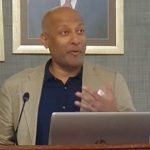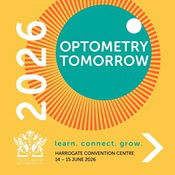Charities & Support Groups
Primary Eyecare visit in Middle East
Importance of primary eye health care highlighted after Middle East visit
A BRITISH optometrist is highlighting the importance of primary eye health care after a visit to the Middle East.
 As a Fellow of the College of Optometrists, Rakesh Kapoor was part of a delegation from Aston University’s optometry department in the UK to assess a new optometry school at the Arab American University in Ramallah. The visit was organised on behalf of the World Council of Optometry to see the facilities and training provided.
As a Fellow of the College of Optometrists, Rakesh Kapoor was part of a delegation from Aston University’s optometry department in the UK to assess a new optometry school at the Arab American University in Ramallah. The visit was organised on behalf of the World Council of Optometry to see the facilities and training provided.
Reflecting on differences on eye health care in the UK, Mr Kapoor says: ‘I saw a large number of cases of children with amblyopia – lazy eye. In primary care in the UK, they would normally be resolved because there is enough primary care provision.
‘There were also lots of cases of high myopia, undetected glaucoma, undetected diabetic and retinal eye disease. Again, this is because there is no real primary care service.
‘There is a lot of scope for primary care. Ophthalmology has to provide much all of the services. But ophthalmology there is only accessible if you afford it or through charity but there is a lot of demand.
‘It shows you the importance of optometry here.’
Mr Kapoor, who is also a Clinical Performance Consultant supporting clinicians in Specsavers UK practices, explains why that there is a lack of optometrists in Ramallah and surrounding area.
‘People tend to leave when they qualify, and work elsewhere in the Middle East, because of the prospects in that part of the world. This new optometry school will be a big asset for the local community.’
Explaining the background to the visit, he adds: ‘I’ve been a visiting lecturer at Aston University for about 15 years. The American-Arab University has just started an optometry school. The World Council of Optometry was keen to see what level of training is being provided – which is why we went. We requested funding and I travelled with the delegation as an observer.
‘The level of optometry there is refraction and being able to diagnose eye conditions, but not to treat it and not to use any therapeutic drugs. So, it is at a slightly lower level than in the UK. But in saying that, I was impressed with the clinics they had and their face-to-face interactions.’
Mr Kapoor also did some teaching while visiting the new optometry school in Ramallah. ‘I taught the third-year students and Masters’ degree students as well. It is a very well-funded university and well-equipped. Many of the professors have studied their PhDs in Europe and America. The level of teaching was pretty high.’
During his three-day visit, Mr Kapoor visited St John Eye Hospital in Jerusalem as well. ‘This is supposedly the first eye hospital ever opened. The chief executive showed us around. It was amazing and inclusive.
‘They do cataracts every 15 minutes because there is such more demand. The hospital offers a free service or charges the very minimum. They stay at the hospital during their treatment as well,’ adds Mr Kapoor.
‘It was also humbling to see that the children’s frames provided by the hospital come from Specsavers founder Dame Mary Perkins, who supports this charity.’

























